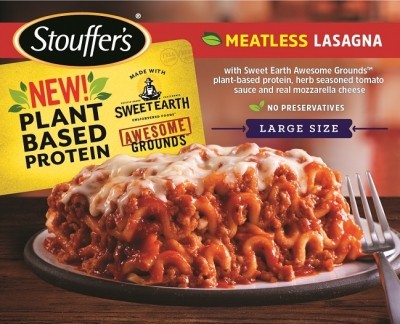Targeting the plant-based consumer: Promote craveability and taste above all else, says Mintel

More than one in five US consumers identies as a flexitarian, representing a large market opportunity for plant-based food and beverage brands and foodservice operators, according to a Mintel report. To best reach this growing audience, Mintel suggests addressing the primary reasons why consumers are transitioning to a more a plant-based diet in the first place.
Lead with health messaging and emphasize taste
"There are three main reasons: health, ethical, and environmental. Health reasons, such as concerns about blood pressure or cholesterol, act as a main driver for consumers in general. Concerns about animal ethics or the impact of animal products on the environment are secondary drivers. Interestingly, these motivations differ by diet type; flexitarians are driven by health reasons, while vegans or vegetarians are motivated by ethical or environmental reasons," said Amanda Topper, associate director of foodservice research at Mintel.
"Leading with health messaging will resonate with most consumers."
Taste acts as a main driver for purchases of plant-based alternatives, and as such, should not be overlooked as part of a marketing and brand communication strategy, Mintel noted. While the novelty of a plant-based item may drive trial, if it's not "craveable," it will not drive repeat purchase, said Mintel.
"Plant-based comfort foods, like fried Buffalo cauliflower or Impossible cheeseburgers, have a place alongside health-focused dishes like loaded veggie grain bowls," Topper said.
Consumers recognize the difference between processed meat substitutes and plant-forward dishes
Mintel also recommends not trying to hide the processed nature of many plant-based alternatives as consumers' awareness of what goes into making these products grows.
Mintel research from 2019 shows that more than three in five consumers agree whole plant foods are healthier than processed meat substitutes, and one in seven agree that meat alternatives like Beyond Meat or the Impossible burger contain too many ingredients. However, one in five consumers still want to see more plant-based options."Consumers’ dietary preferences vary based on occasion and they are starting to recognize that processed meat made from plants is not automatically healthier," noted Topper.
"As consumers begin to question the healthfulness and ingredients in mainstream meat alternatives, operators should promote innovative takes on plant-forward ingredients. Interesting preparations, global flavor profiles and limited time offers can all drive interest. This may take the form of a vegetable-forward dish with familiar, yet flavorful, preparations such as roasting or smoking, or even by adding a housemade spice blend or sauce to manufactured plant-based proteins," she continued.
Meat 'craveability' sells
When dining out, consumers are more likely to indulge and therefore, restaurants should appeal to these diners with familiar, craveable meat alternatives, recommended Topper.
"Consumers, especially flexitarians, still crave the taste of meat. More than half of US consumers agree meat alternatives should closely mimic the taste of meat. Different occasions will call for different plant-based experiences meaning restaurants should offer processed meat substitutes as well as plant-forward dishes," Topper said.
"The majority of consumers report no specific dietary restrictions and are most focused on taste over specific ingredients if selecting a plant-based protein option," added Karen Fromanski, Mintel health and wellness analyst.


















